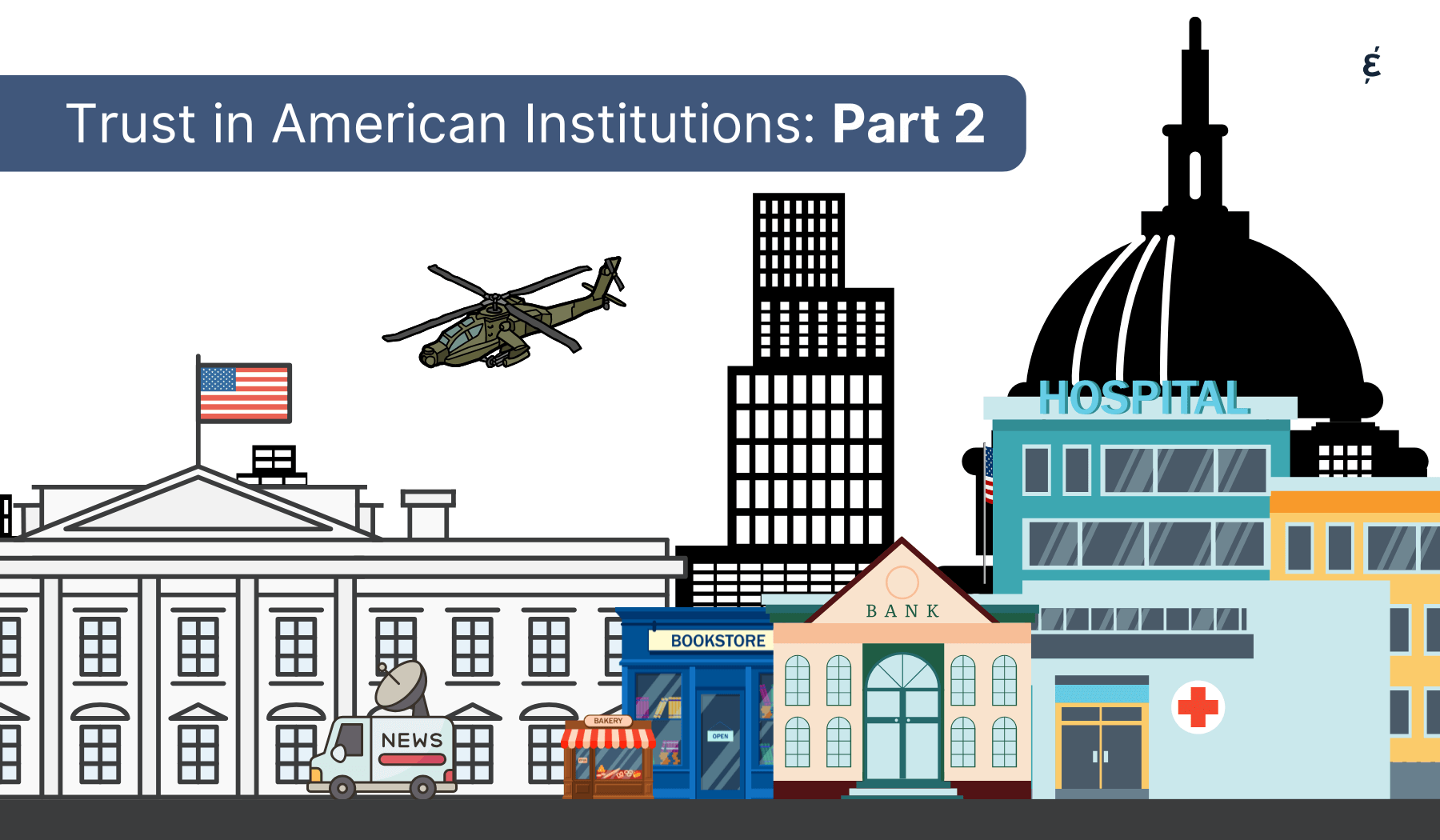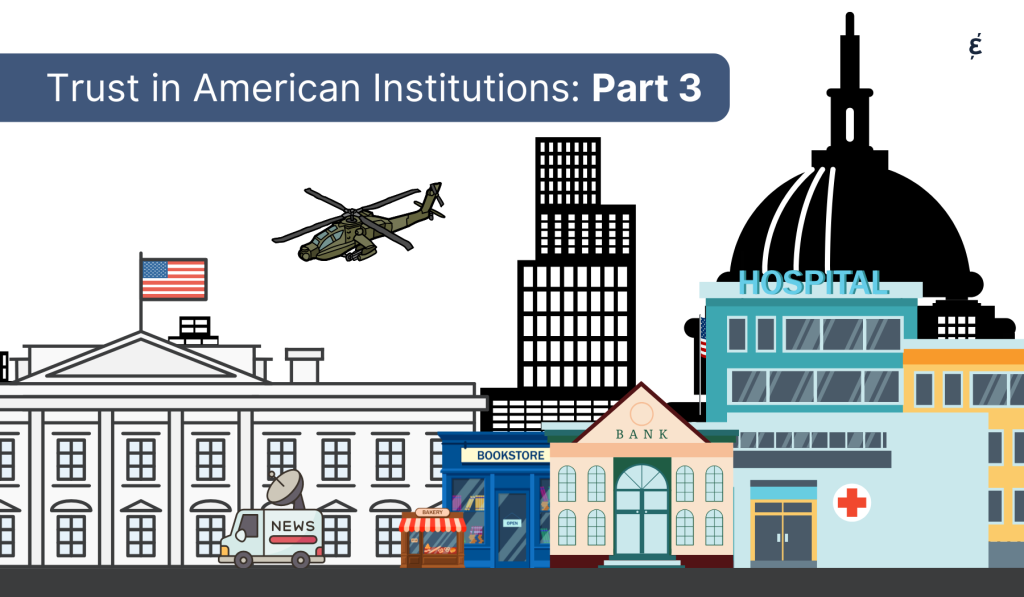

In the aftermath of the 2024 presidential election, which saw Donald Trump return to the White House, Americans’ trust in their institutions remains a critical barometer of national sentiment. To track these evolving attitudes, we conducted three surveys: the first in August 2024, before the election, the second in December 2024, immediately after it, and most recently in May 2025 — marking 100 days into President Trump’s second term.
This seguential approach enables track us to how public sentiment toward major institutions — including branches of government, media, business, and non-profit organizations — has shifted in response to the election and the early actions of the new administration.
One trend has remained strikingly consistent across all three surveys: large corporations rank dead last among major institutions when it comes to public trust.
According to the May 2025 data:
Our exploration of trust in major institutions revealed other consistent patterns:
Despite their economic influence and innovation contributions, large corporations struggle to earn public trust.
This may reflect concerns about profit-driven priorities, workforce reductions, automation, or perceived political influence.
Trust appears increasingly reserved for institutions perceived as community-oriented or socially responsible.
Our survey reveals a significant evolution in Americans’ preferred presidential background or archetype:
The growing preference for diplomatic leadership suggests Americans increasingly value negotiation skills, international cooperation, and tactful governance — possibly reflecting concerns about geopolitical tensions and domestic polarization.
When asked about essential presidential qualities, respondents consistently prioritized character over competence:
The data suggests a sustained public desire for ethical leadership. In an era of heightened skepticism, values like honesty and transparency appear increasingly influential in shaping voter preferences.
This dynamic landscape of trust and leadership preferences reveals deeper currents in American political consciousness —and an evolving perspective:
In short, these findings offer valuable insights for political actors, institutional leaders, and corporations seeking to rebuild trust in an increasingly skeptical society.
The August survey took place 19–25 August 2024 and involved 1,367 respondents. The December survey took place 2–8 December 2024 and involved 1,278 respondents. The May survey took place 30 April–11 May and involved 1,126 respondents.
Submit the form below and unlock exclusive access to our in-depth dataset, covering a comprehensive breakdown of gender, age, and political afliliation trends in the United States from August 2024 to May 2025.